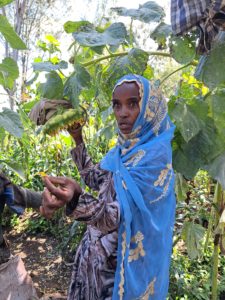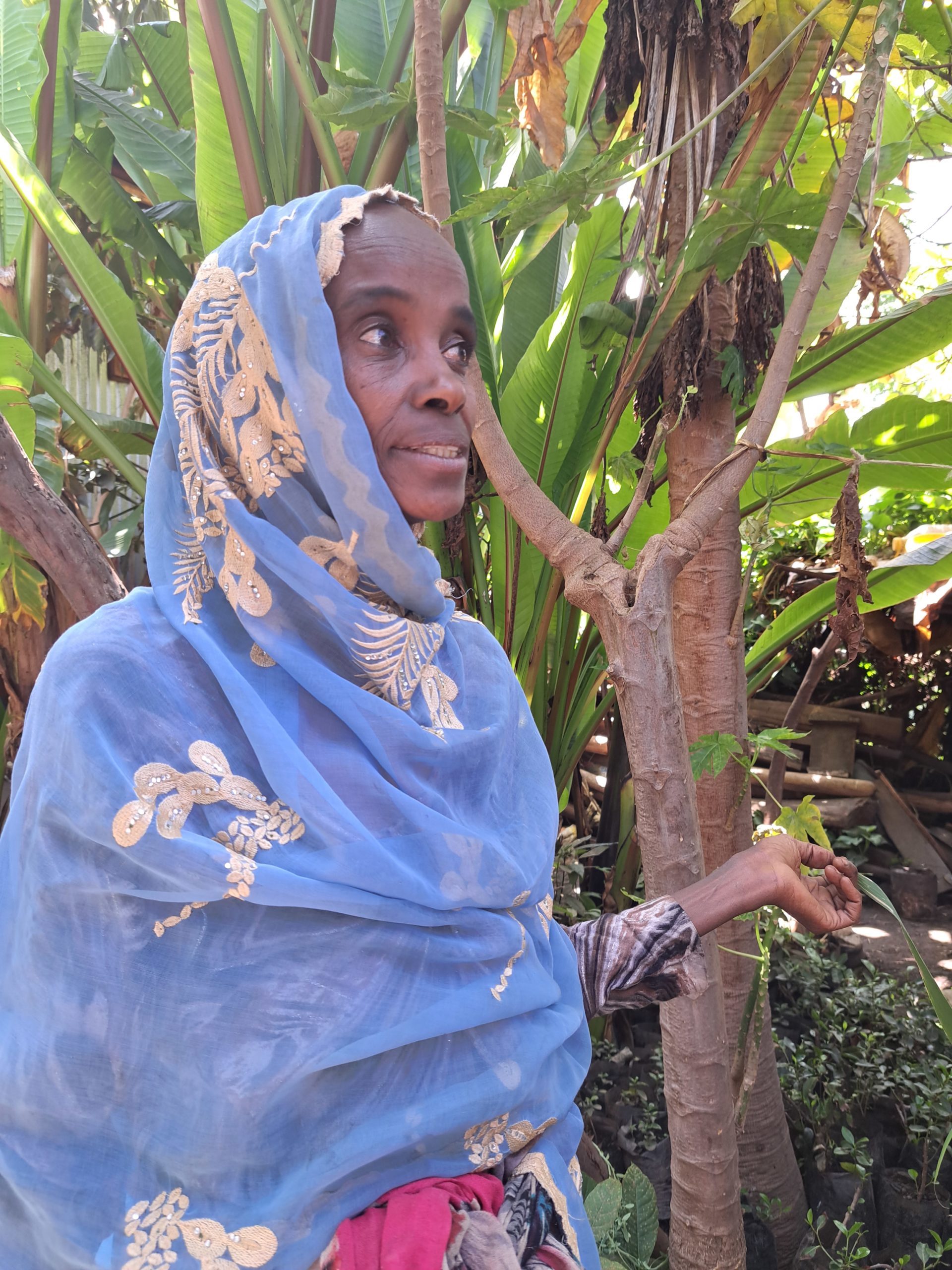
According to the World Bank, agriculture represents 50 percent of Ethiopia’s GDP and provides the livelihood for approximately 85 percent of its population[1]. Cereal crops, such as teff and wheat, are grown at scale across the country; the production and export of coffee beans alone accounts for 40% of total exports and 10% of total government revenue[2]. But making a living from agriculture is hard. The price of artificial pesticides and fertilizers has skyrocketed, increasing by a 30 per cent since 2022, following a surge of 80 percent in 2021[3].
So, switching from conventional farming to organic farming can improve people’s livelihoods, as well as improve both soil and human health. It’s the smart choice.
“The soil is so fertile here that I don’t need extra fertilizers,” says Badiriya Yassin.
Ms Yassin is part of a displaced community from Harerge, eastern Ethiopia. She and her family arrived in Bishoftu six years ago, fleeing the violence in Somali Region, Ethiopia. The Ethiopian government gave them a small piece of land by on which they could start growing food for themselves. The idea was that any surplus would be sold to the people living next to them.
Ms Yassin and her community have seized their opportunity. Their patch of wasteland is now a flourishing garden. There are long-term crops, such as maize, wheat, sugar cane, coffee, bananas, papaya and avocados. Sorghum, rice, chickpeas and sunflowers add to the mix. They also grow annual vegetables, such as Swiss chard, lettuce, hot peppers, tomatoes, Habesha kale, pumpkins, cabbages and beans.
But is it sustainable?

Ms Yassin began farming organically after attending a three-day workshop organized by the Green Flower Foundation in 2022. During the workshop, she learnt about important organic farming techniques such as mulching, compost and intercropping. Since then, she has collected seeds from her vegetables and covered her seedlings with mulching to keep the soil most. The beautiful mound of compost she has is used only for seedlings – “because the land is so fertile,” she says.
The Green Flower Foundation has been promoting organic farming in Ethiopia through vocational training since 2018. Through our work with the Ministry of Agriculture, organic farming was added to the curriculum in agricultural Technical and Vocational Education and Training (TVET) centres in the country. So far, 36 students have taken the 3-year course and GFF trained 80 farmers on short-term courses.
[1] https://documents1.worldbank.org/curated/en/656581468339659645/pdf/327290white0co15070Ag1MDGs1Complete.pdf
[2] https://www.ncbi.nlm.nih.gov/pmc/articles/PMC8461354/
[3] https://blogs.worldbank.org/opendata/fertilizer-prices-expected-remain-higher-longer
